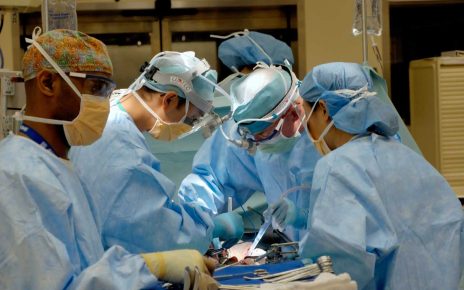Researchers at Washington University School of Medicine in St. Louis have received a five-year, $3.2 million grant to study the genetic basis of the musculoskeletal disorder scoliosis, and particularly how it affects African Americans and other underrepresented minorities.
The grant was awarded by the National Institute of Arthritis and Musculoskeletal and Skin Diseases of the National Institutes of Health (NIH).
“One of our main interests in studying genetics and scoliosis is to see if there is anything we could uncover to improve the way we treat such patients,” said grant co-investigator Christina A. Gurnett, MD, PhD, the A. Ernest and Jane G. Stein Professor of Developmental Neurology and director of the Division of Pediatric and Developmental Neurology. “There is a lack of data regarding underrepresented minorities in particular, including African-Americans. By including individuals from diverse genetic backgrounds, we can improve understanding and treatment of this condition for all members of our community.”
About 3 million new cases of scoliosis — a disorder that causes the spine to curve in shapes that can look like a “C” or an “S” — are diagnosed every year in the U.S. The condition generally causes mild problems. However, severe cases can cause joint damage, arthritis, breathing difficulties, and back or pelvic pain. Sometimes it may require a back brace or surgery.
In prior research, Gurnett and other researchers identified genetic risk factors for severe scoliosis. However, it is not yet known whether risk factors are generalizable to diverse patient populations, she said.
The researchers plan to examine 1,000 African American teenagers with idiopathic scoliosis via St. Louis Children’s Hospital, where Gurnett serves as neurologist-in-chief. Idiopathic means the patients have no known health risks that would contribute to scoliosis, which often begins during puberty and can run in families.
Unfortunately, economic and social factors hindering access to health care can cause scoliosis to worsen and become increasingly painful. Health disparities also can increase risk for rare complications of co-occurring conditions including aortic aneurysm and for syringomyelia, a neurological disorder that occurs when a cyst forms in the spinal cord. Both conditions can be serious and life-threatening. However, they may be prevented with early diagnosis and treatment.
“In an era of precision medicine, there is an unmet need to change how we treat scoliosis,” Gurnett said. “However, our ability to interpret genetic data in understudied populations remains limited. The grant will help us to determine whether known risk factors are generalizable to African Americans, and to identify risk variants that can only be identified by studying individuals of African ancestry.”
The grant also will support research examining genetic variants in zebrafish models of scoliosis and will assess scoliosis risks in older patients in collaboration with the Geisinger Commonwealth School of Medicine in Scranton, Pa.
“Through our studies, we hope to move closer to the goal of precision medicine for scoliosis,” Gurnett said.
The other two co-investigators include Sheng Chih (Peter) Jin, PhD, a Washington University assistant professor of genetics; and Matthew Dobbs, MD, formerly a Washington University professor of orthopedic surgery, now at the Paley Orthopedic & Spine Institute in West Palm Beach, Fla.
Source: Read Full Article



